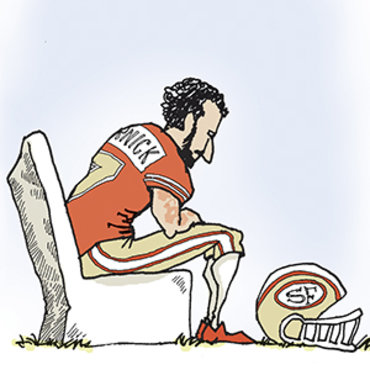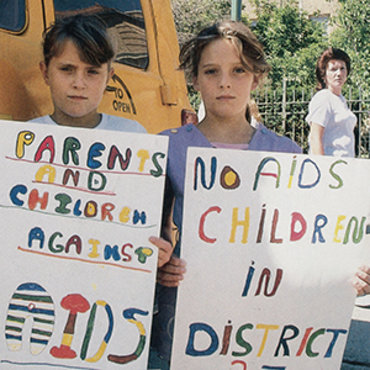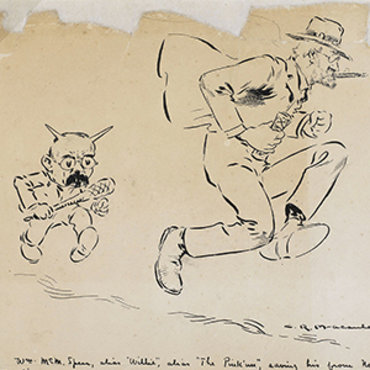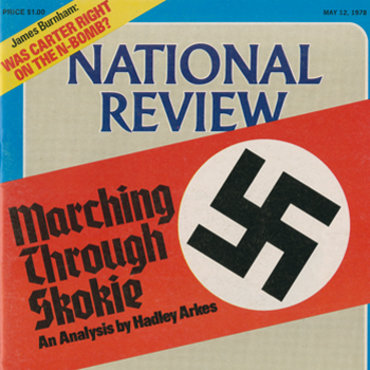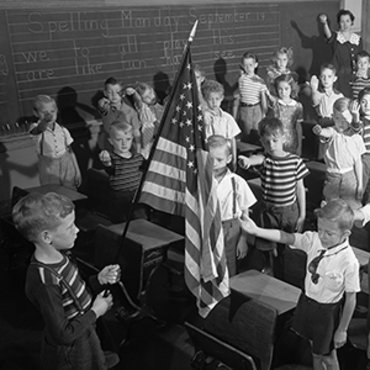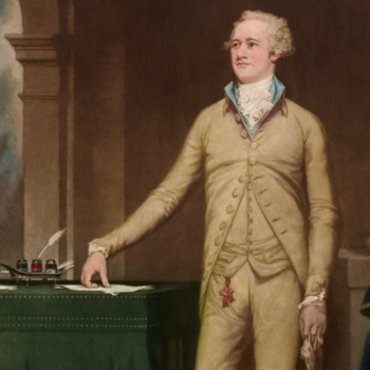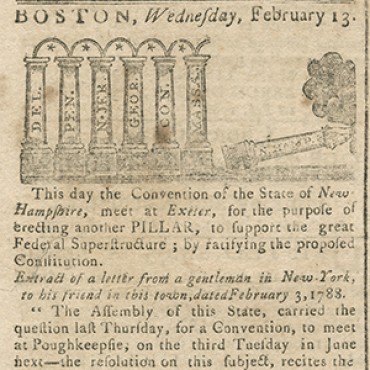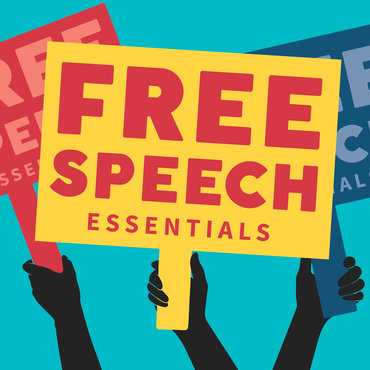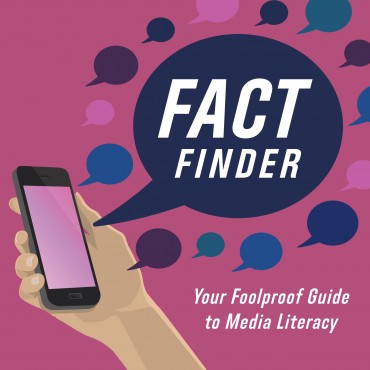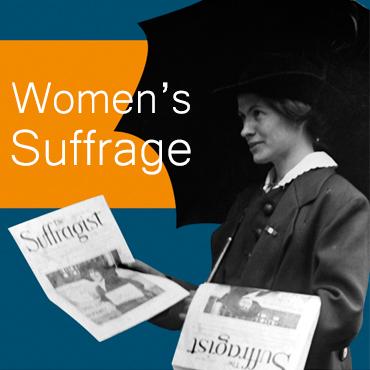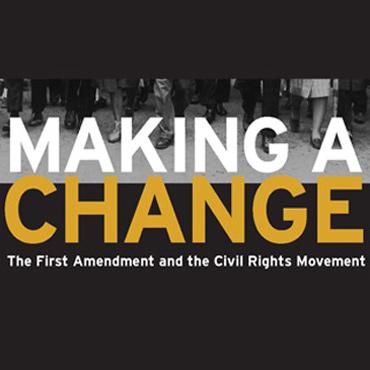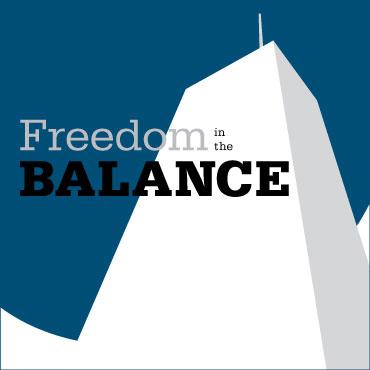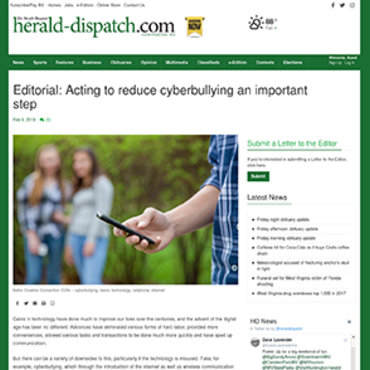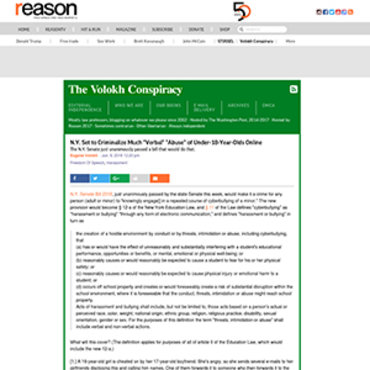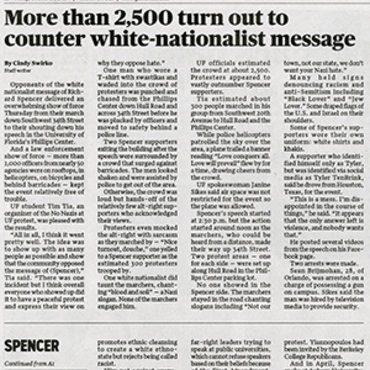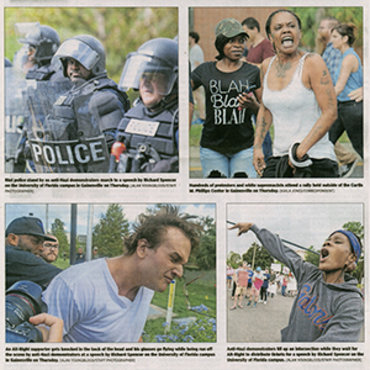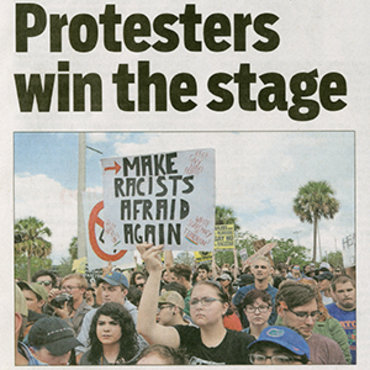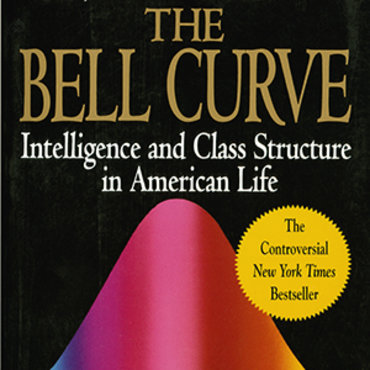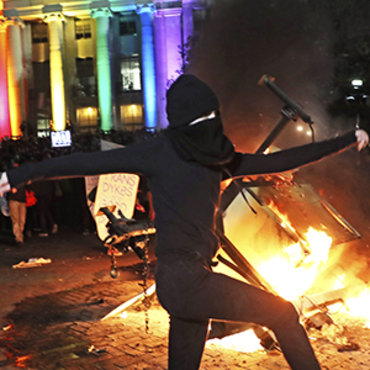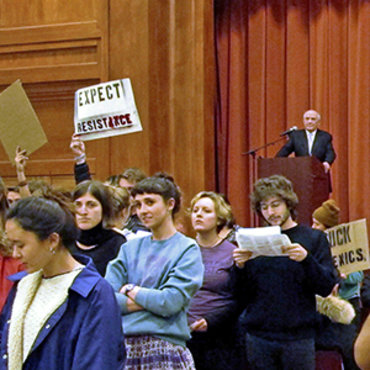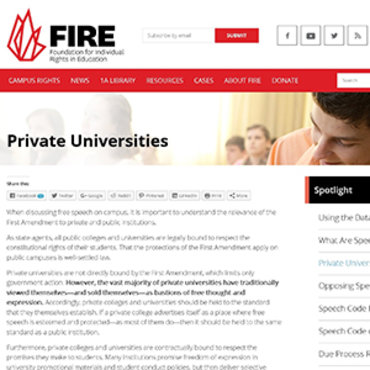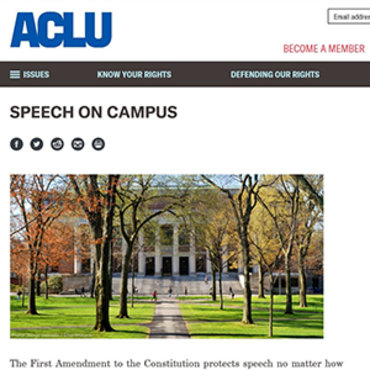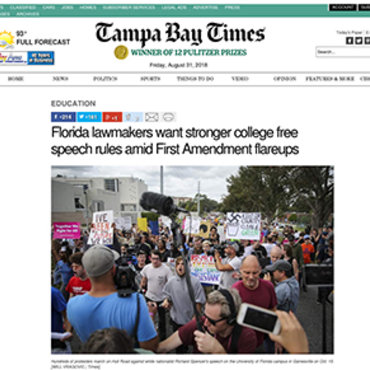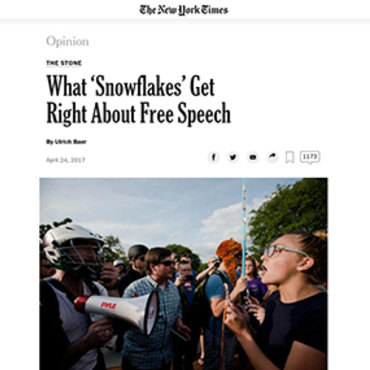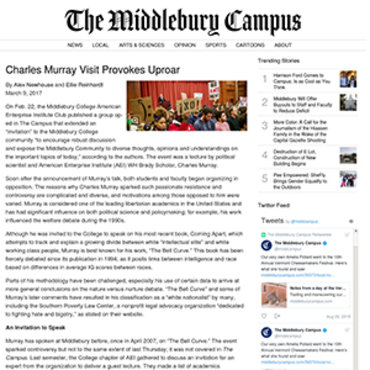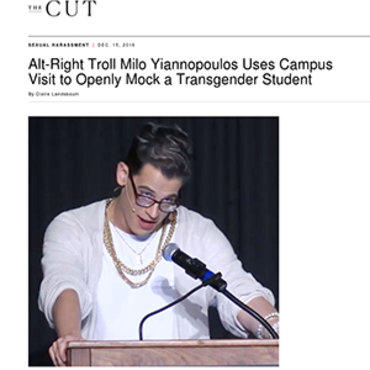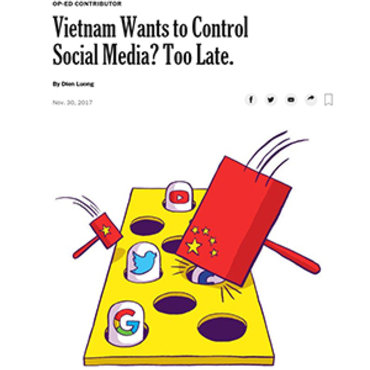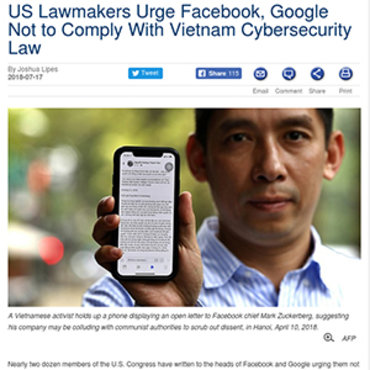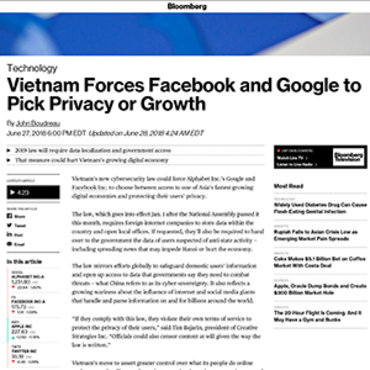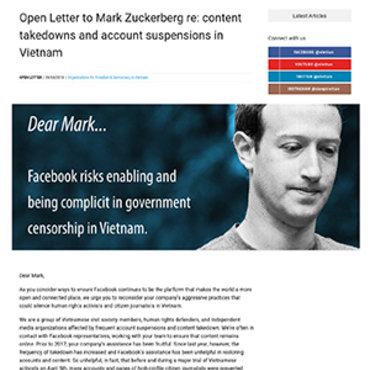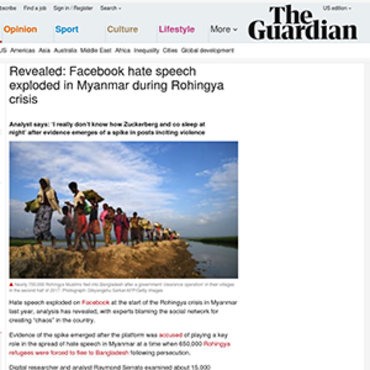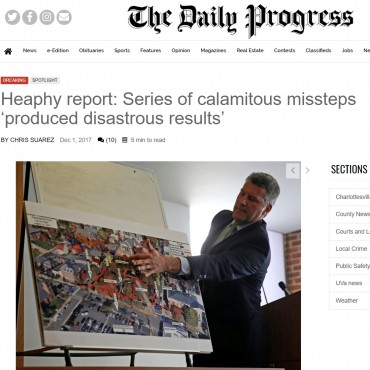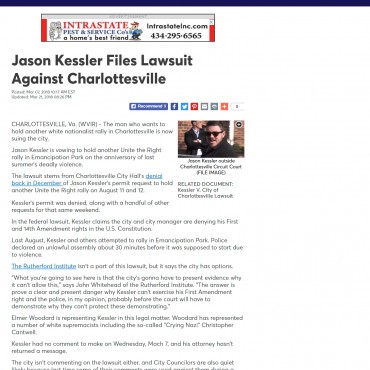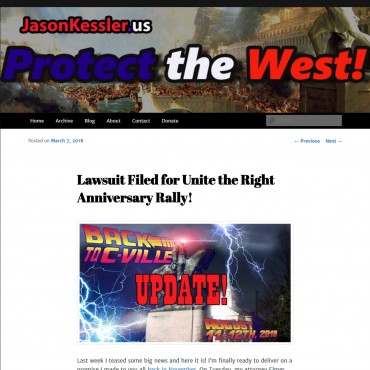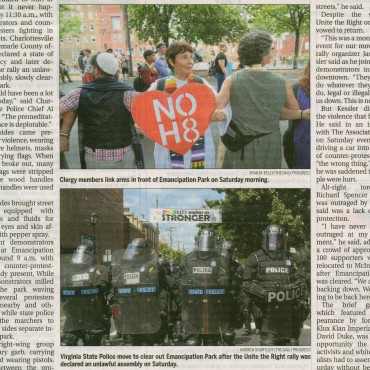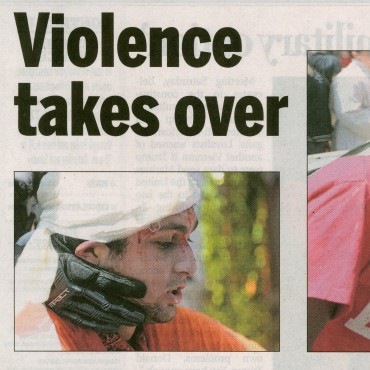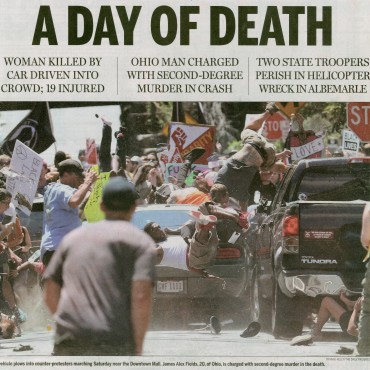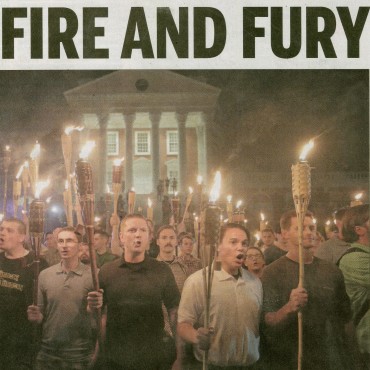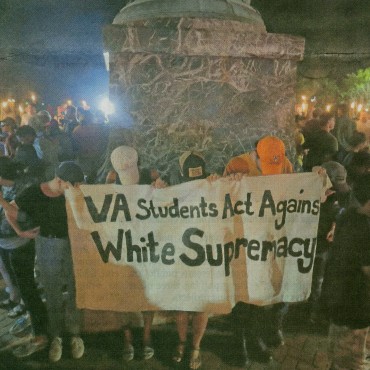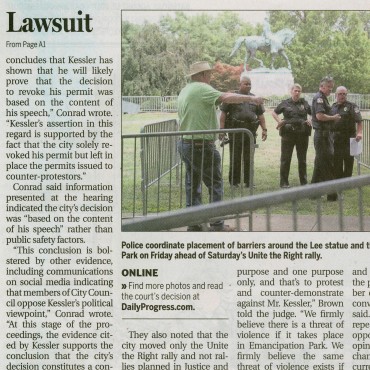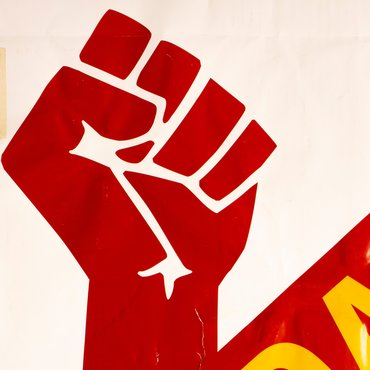2016: Posting About a Player’s Protest
Do social media posts magnify the impact of a protest for better or worse?
Get even more great free content!
This content contains copyrighted material that requires a free NewseumED account.
Registration is fast, easy, and comes with 100% free access to our vast collection of videos, artifacts, interactive content, and more.
NewseumED is provided as a free educational resource and contains copyrighted material. Registration is required for full access. Signing up is simple and free.
With a free NewseumED account, you can:
- Watch timely and informative videos
- Access expertly crafted lesson plans
- Download an array of classroom resources
- and much more!
This Critical Debate is part of a Debate Comparison:
See all Debate Comparisons- Constitution
- Current Events
- 7-12
- College/University
Do your students know what they’re free to say online? At school? On a public street corner?
From censorship to cyberbullying, the First Amendment and the freedoms it protects are as hotly contested as ever. This case study is part of our EDCollection that explores 16 free speech debates ranging from the founding of our nation to recent headlines to illustrate what free speech actually means, where it comes from, and how far it can go. It’s information everyone needs to voice their opinions and shape our society.
Using This EDCollection
This EDCollection is designed to meet the needs of a wide range of circumstances and curricula. Whether you’re a social studies teacher looking for a complete unit or an English teacher looking to spend a single class period on free expression, there’s something for everyone. This complete package will lead students to the outcomes below.
Build Fact-Based Arguments
The Free Speech Essentials curriculum aligns with state and national standards as it guides students to take a position, find evidence to support it, and make a compelling presentation to their peers. Potential evidence includes:
- Writings, images and video from 1787 to 2018
- Primary and secondary sources
Connect Past and Present
Six of the eight pairs of case studies in this EDCollection juxtapose real historical and contemporary debates on a key free expression question. These pairs allow students to explore the historical origins of a key question — and get context for tackling today’s hot-button issues. The other two pairs provide different perspectives on a contemporary issue. Topics include:
- Federalism and Facebook
- Presidents and the press
- Censorship and cyberbullying
Keep Calm (and Debate On)
Our case studies are structured to help students experience the passion of the real players, while still practicing productive debate. We provide everything you need to prepare and fully support your students as they engage in civil discourse and debates:
- Overviews of the outcomes
- Clear scenarios and suggested positions
- Suggested discussion prompts.
Today’s social and political landscape can sometimes make free speech and First Amendment controversies seem too explosive for classroom exploration. We’ve created Free Speech Essentials to give you the tools you need to start tackling these vital topics with confidence and create enriching experiences for your students.
— The NewseumED Team
THE CASE
You work for a nonprofit organization that advocates for greater racial equality in the United States. Recently, there have been a number of shootings in which police officers have killed unarmed black men. Your organization is looking for a way to publicize this issue and help create a movement for change to ensure that all Americans can live in safety and without fear.
You become aware of a protest started by a biracial quarterback with the National Football League. In order to bring attention to the issue of police shootings, this athlete has started to kneel rather than stand when the national anthem plays before a game. Some teammates and players on other teams have periodically chosen to join him in this gesture. In interviews, the player has confirmed that he is hoping to use his high-profile position to call attention to racial injustice in America.
The athlete’s protest has been met with both support and anger. Supporters see the kneeling as a peaceful and respectful way to remind the public that racism continues to impact many Americans, sometimes with fatal consequences. Critics say that kneeling during the anthem shows disrespect toward our nation and service members who have made many sacrifices — sometimes even giving their lives — to keep our nation safe and prosperous.
You believe this protest could be an opportunity to encourage a bigger conversation about inequality in America. You are deciding whether to begin a campaign on social media about the protests to drum up support for your organization and the changes it seeks to make. You could post photos and messages tracking the latest protests, public responses and the athlete’s comments on his actions, and possibly tap into some athletes’ large social media followings.
Taking the conversation online might give the protest more reach and start a conversation protected by the First Amendment. (As a private company, the NFL has the power to stop players’ protests at any time.) But posting about the protests could also elicit some angry reactions and draw out trolls who may use their First Amendment freedom of speech to attack your cause.
Should you try to expand the impact of this protest using social media?
-
Yes. Speech on social media is an essential part of the way we communicate today.
This protest presents an opportunity to build support for your goals. Social media allows you to reach and engage with a larger audience.
-
No. Speech on social media usually just leads to name-calling and no real action.
This protest has already had an impact. Although conversations online enjoy First Amendment protection, they would also probably be shallow and could turn ugly.
- How might posting about these protests on social affect their impact, both for better and for worse? Who could you reach? How might they respond?
- Which is more effective and why: an in-person act of protest or an online act of protest?
- What are the pros and cons of sharing controversial perspectives on social media?
- When the First Amendment protects voices on both sides of a debate, how should one side respond to criticism or attacks from the other side?
- Can constructive conversations about important topics take place on social media? If so, explain what must happen to lead to a constructive outcome. If not, explain why.
- Do you think celebrities such as professional athletes influence how citizens perceive important issues? How does their influence compare to politicians? The news media? Average citizens?
- Should people in high-profile positions like athletes weigh in on social or political issues? Why or why not?
- What rules or guidelines should you follow to exercise your free speech online in a responsible way? What are the benefits of being respectful and responsible in your online speech?

